There are lots of DIY projects that require you to spend time outdoors. Woodworking, gardening, and painting furniture involve plenty of time outside or in garages and workshops. While this is enjoyable during mild weather, it’s less appealing during the cold weather months. Thankfully, you can do plenty of craft ideas and projects in the comfort of your home, no matter the weather.

Image credit: Sadie Seasongoods.
Winter is an excellent time to focus on small, simple crafts or to take the time to learn new crafting techniques. Many handicrafts lend themselves to a cozy feeling or bolster the concept of “Hygge.” Hygge is a Danish word embodying a relaxed, contented feeling involving simple comforts and being around the people you cherish.
There are many ways to enjoy coziness during winter, including watching movies, reading books, and making things by hand. Drinking a comforting beverage and settling into these cozy activities helps keep the “winter blues” away.
Indoor Craft Ideas
While many different arts and crafts ideas are available, these specific creative pursuits are ideal for spending time indoors.
Handmade Candles
Candles go perfectly with winter and are good to have on hand if you experience a power outage. Making candles is a very soothing craft project and simple enough for a beginner to try.
To make candles, you need a few general supplies:
- Wax: Most craft stores and online marketplaces sell candle-making wax flakes that melt quickly for this craft. Soy wax flakes are the most popular kind to use.
- Wicks: While you can make wicks from scratch, buying pre-made wicks with clips (i.e., metal bases) already attached is easier.
- Pouring Pot: Heating the wax flakes using a double boiler is the most common way to melt the wax. Using a pouring pot as a double boiler in a kitchen pot makes this process easy and foolproof.
- Vessels: Small glass jars work wonderfully as a vessel for melted wax. However, other materials (metal and some ceramics/pottery) also work.
Making candles is a straightforward process that involves setting the wick in a vessel using hot glue, melting the wax in a double boiler, and pouring the melted wax into the candle holder, leaving approximately one inch of room at the top. It’s a waiting game from there while the wax cools entirely and hardens into a candle. After that, trim the wick, and your handmade candle is complete.
Adding scents to handmade candles is also popular. Essential oils and fragrance oils are both available for this purpose. However, essential oils are made from natural ingredients and are safer for aromatherapy purposes.
Self-Care and Bath Products
Making all-natural bath and body products has grown popular as people seek safer alternatives to synthetic store-bought options. Cold weather often results in dry skin and chapped lips, so making treatments for these ailments is quite appealing.
The most uncomplicated spa products that you can make at home include:
- Lip balm: Handmade lip balm recipes typically include a type of butter (cocoa or shea), an oil (avocado, jojoba, coconut, or other stable oil), and beeswax.
- Lotion: Lotions and body butter are made from ingredients similar to lip balm, including cocoa or shea butter and coconut oil.
- Bath salts: The central ingredient in most bath salt recipes is Epsom salts, but other salts (Dead Sea or Himalayan salts) can also be used. Additional mix-ins, such as dried lavender, essential oils, and flowers, are regularly included.
- Sugar scrubs: As the name implies, sugar (plain white) is the main ingredient in sugar scrub recipes. Adding oil (coconut, grapeseed, or almond) creates a paste.
Numerous recipes and ingredient swaps for these and other handmade spa products exist. Part of the fun with this craft idea is tinkering with the ingredients to find your favorite blend and fragrance combinations. Other pantry staples, such as honey, oatmeal, and coffee grounds, are often included in DIY spa recipes.
Don’t be surprised if your friends ask you to make them some bath products, too! A jar of body butter or a trio of scented lip balms makes an excellent gift at any time of the year.
Jewelry-Making
While making jewelry may initially seem complex and intimidating, the basics are simple to master with the right tools and materials. Craft stores stock beads, tools, and other metal findings that beginners and seasoned jewelry makers use.
Essential supplies that are needed include:
- Jewelry toolset: This typically includes a pair of small needle nose pliers, wire cutters, and round nose pliers.
- Jewelry wire: Silver is the most common metal color, but gold, copper, and bronze-colored wire are also available.
- Chain: Pre-made chains in different metal colors and link sizes are readily available at craft stores. Using a jewelry toolset allows the maker to shorten the chain and insert beads, charms, pendants, and clasps.
- Beads: Craft stores and bead emporiums are stocked with beads of all colors and materials.
- Findings: In jewelry-making, “findings” is an umbrella term that includes most metal pieces used to create jewelry. Essential findings include clasps, jump rings, eye pins, and earring hooks.
With the basic supplies, it’s easy to create simple jewelry pieces. Beaded bracelets and a pendant necklace are perfect craft ideas for a beginner. But you can explore endless techniques to make earrings, bracelets, necklaces, and more.
Fiber Craft Ideas
Several fiber crafts are ideal indoor activities during cold weather spells. They don’t involve anything that needs to be done outdoors (such as painting), are relaxing, and many of them result in cozy finished projects.
Knitting
Knitting is a type of needlecraft that uses two knitting needles and yarn to create interlocking loops that form a fabric. The knitting needles required come in various sizes (or gauges) and may be constructed of metal, plastic, or bamboo. Larger needles result in bigger, looser/open stitches, whereas smaller needles create tighter stitches.
Choosing the suitable yarn for a knitting project depends on what a pattern requires (such as weight) and which type of fiber (cotton, wool, etc.) you want to work with.
Crochet
Crochet is like knitting in that it is a needlecraft that uses yarn. However, unlike knitting, crochet uses a single needle with a hook at one end. Crochet works a single stitch at a time to create fabric from yarn. Whereas knitted pieces have some stretch (like a sweater), crocheted projects tend to be stiffer and sturdier.
Sewing
In its most basic form, sewing connects two pieces of fabric using thread. This can be done by hand with a sewing needle, but most sewists use a sewing machine to create their projects.
Easy sewing projects for a beginner include a simple bag, placemats or table runners, and cloth napkins. These projects use straight lines and basic settings on a sewing machine.
Embroidery and Cross Stitch
Both embroidery and cross stitch are delicate needlecrafts that use an embroidery hoop, cloth, embroidery floss, and a large needle with a blunt tip. A variety of stitches are used in embroidery to create dimensional designs, and these can be stitched on any type of cloth.
As its name implies, cross stitch uses a series of x-shaped stitches to create designs on Aida cloth. Aida cloth sports a grid-like pattern that enables the maker to follow cross-stitch patterns more easily.
Weaving
Thanks to the modern Boho decor trends of the past few years, weaving has made a resurgence in popularity. At its core, weaving requires a simple loom, warping thread, yarn, and a large, blunt needle.
While pre-made looms are available, a beginner can create a simple loom from a wooden picture frame or even a piece of cardboard. Round looms can be made using an embroidery hoop or a paper plate. Warping is threading the loom with vertical fiber through which the yarn is ultimately woven.
Decoupage
Decoupage is a simple but effective craft idea favored by upcycling crafters and furniture painters. At its core, the concept of decoupage involves adhering paper cut-outs to another object in a way that makes the cut-outs look painted on or in-laid. It’s an easy technique and doesn’t require fancy or expensive craft tools or equipment, so it’s a perfect craft idea for a beginner.
The primary supplies in decoupage include an adhesive or glue, such as Mod Podge®; an inexpensive paint brush; paper cut-outs or ephemera; and a project piece, such as furniture, a wooden box, or a picture frame.
While just about any surface can be decoupaged, wooden items work exceptionally well. Brush strokes in the decoupage glue can be visible on glass or metal projects, whereas wood projects are better for masking the brush strokes.
There is no limit to the types of paper that can be decoupaged to a project. The most popular paper for decoupage is decorative paper napkins, which have beautiful graphics and colors. The thin, tissue-like paper is ideal for decoupage crafts, as the edges disappear for a seamless look.
Winter Bird Feeders
While you likely won’t be gardening much during the cold winter months, you can make projects that the birds will love for your dormant gardens. Winter bird feeder crafts are simple and heartwarming, knowing that you ensure that wildlife is fed and nourished during winter.
Traditional suet is made from beef fat and birdseed. Pure beef fat is safe for birds (and other wildlife) to eat and doesn’t melt quickly in the sun or during milder winters.
You can make a suet mixture by purchasing beef fat from a butcher and rendering it (i.e., melting it in a pot on the stove) at home. Mix in the birdseed and pour into a feeder like an old coffee mug.
Additionally, you can create winter bird feeders with natural, unsalted peanut butter, as well. Smear the peanut butter on toilet tissue tubes, roll the tubes in birdseed, and hang the tube outdoors. Similarly, you can add peanut butter to large pinecones and roll it in seed for a natural feeder.
Stay Cozy With These Craft Ideas
Feeling productive yet comfortable is an excellent way to find enjoyment during cold weather while staying safely indoors. These craft ideas are an ideal opportunity to feel the satisfaction of creating something by hand, even if you feel cooped up indoors.
This article originally appeared on PinkWhen.
~~~
PIN ME!
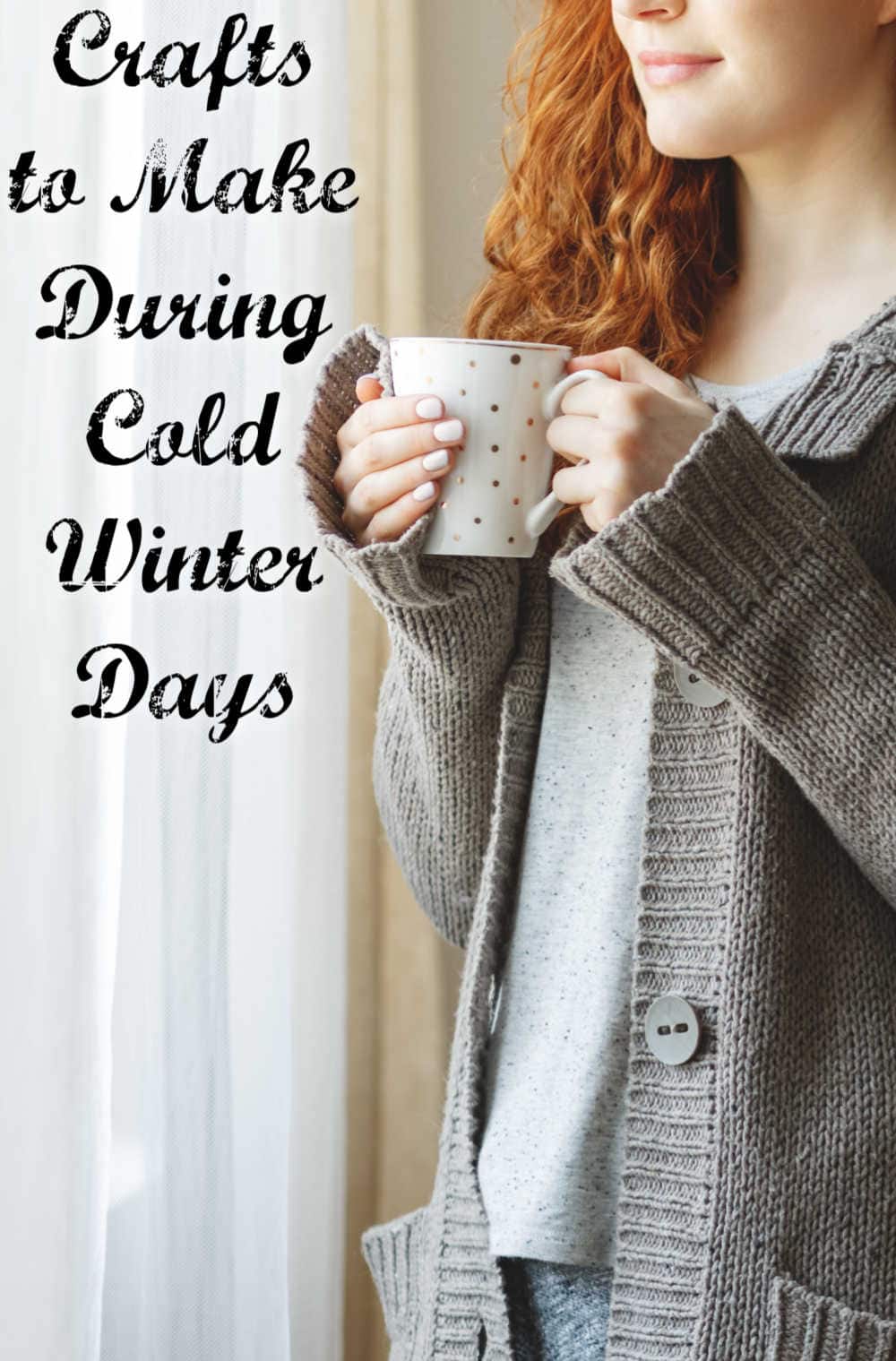
Image credit: Shutterstock via PicMonkey.
Sarah Ramberg is the owner of Sadie Seasongoods, a website that celebrates all things secondhand. From upcycling ideas and thrifted decor to vintage-centric travel itineraries, Sadie Seasongoods is a one-stop shop for anyone who loves thrifting and approachable repurposing ideas. Sarah is also the author of “Crafting with Flannel” and has been featured in numerous media outlets and magazines.


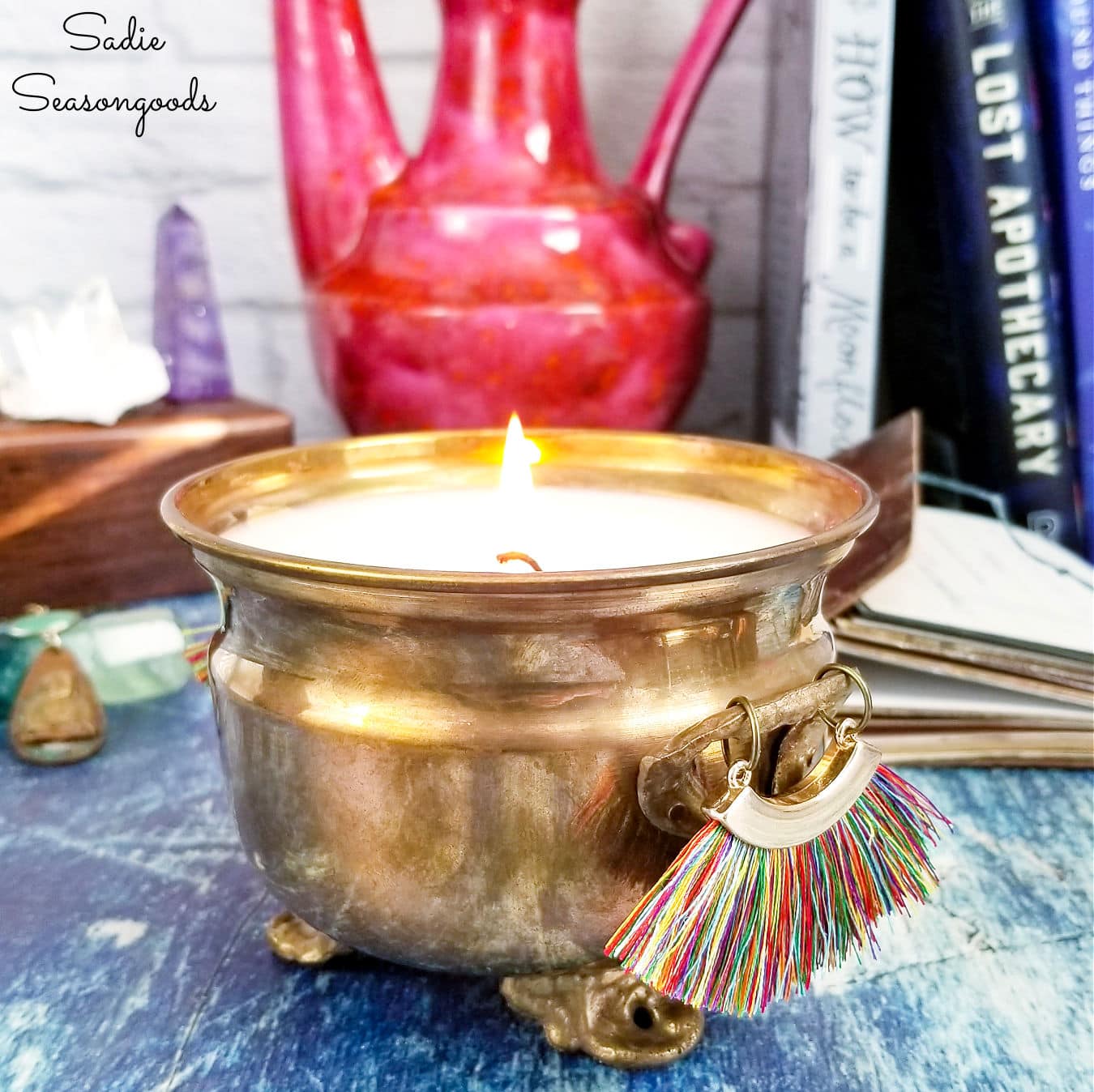
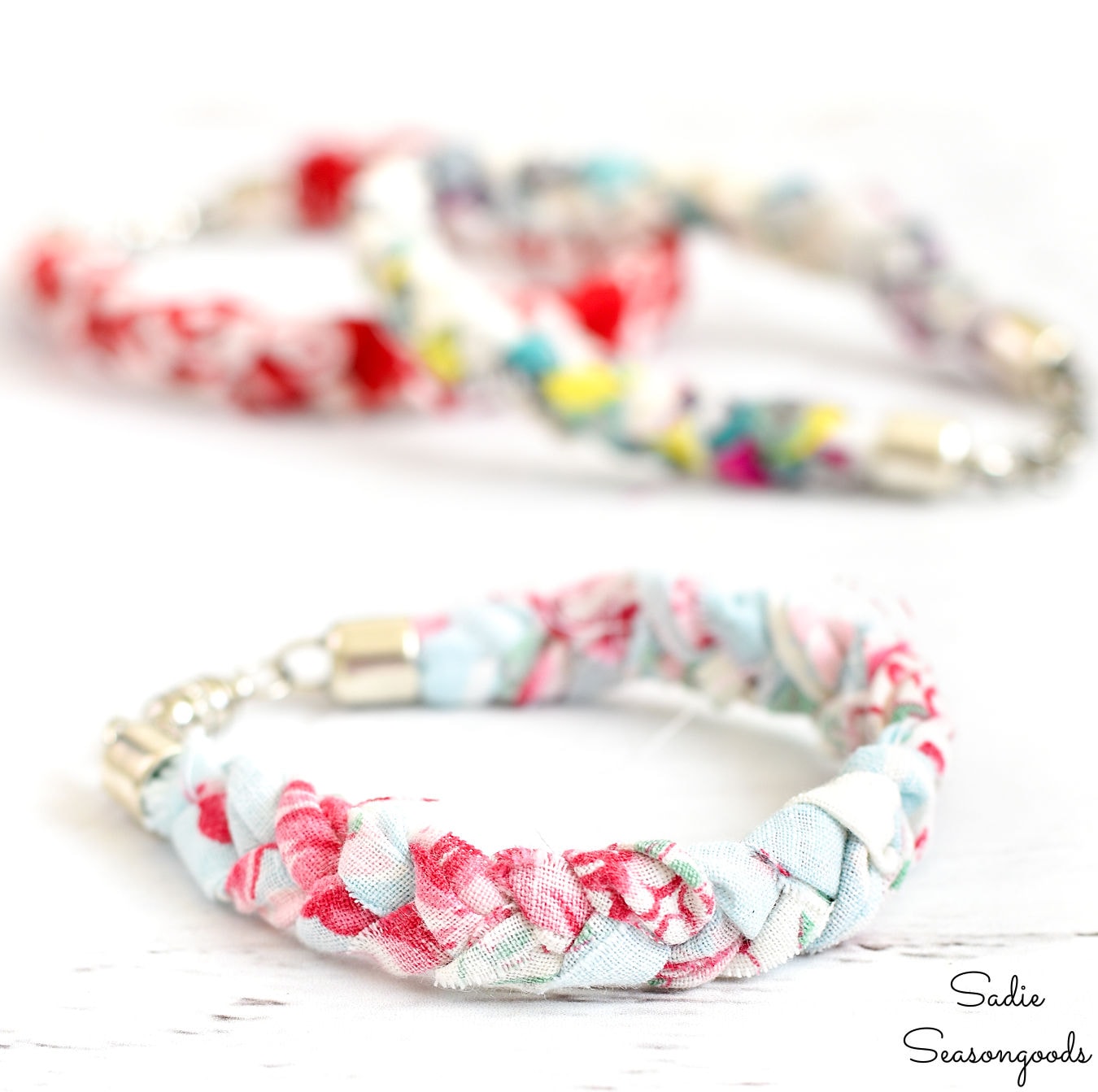
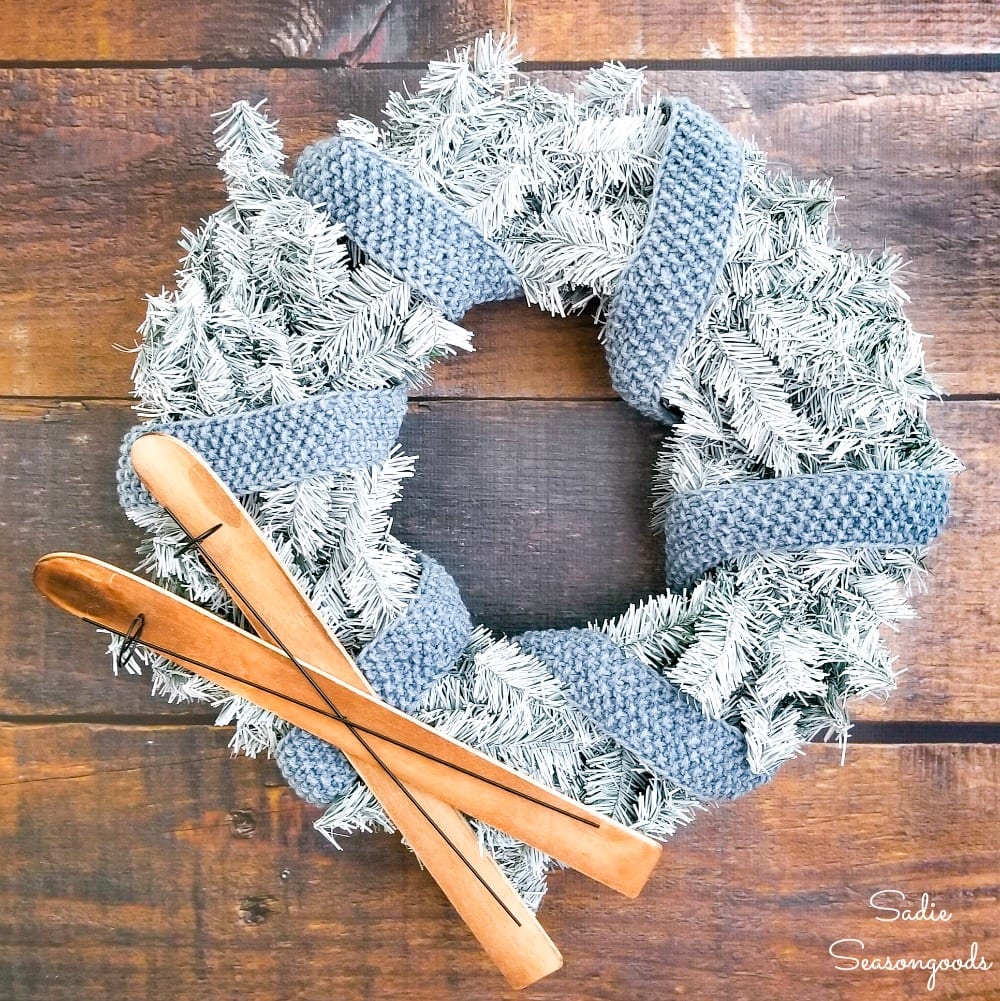
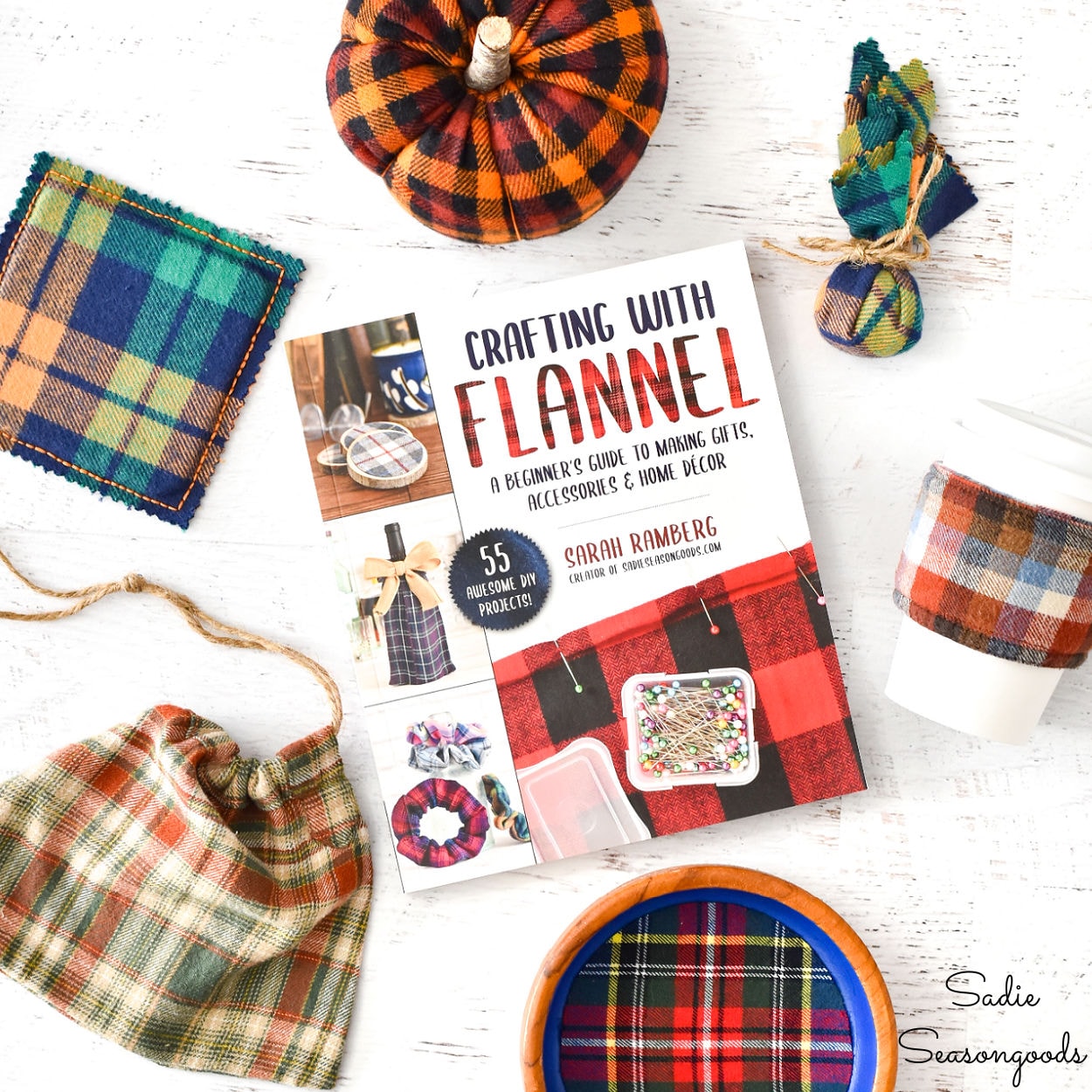
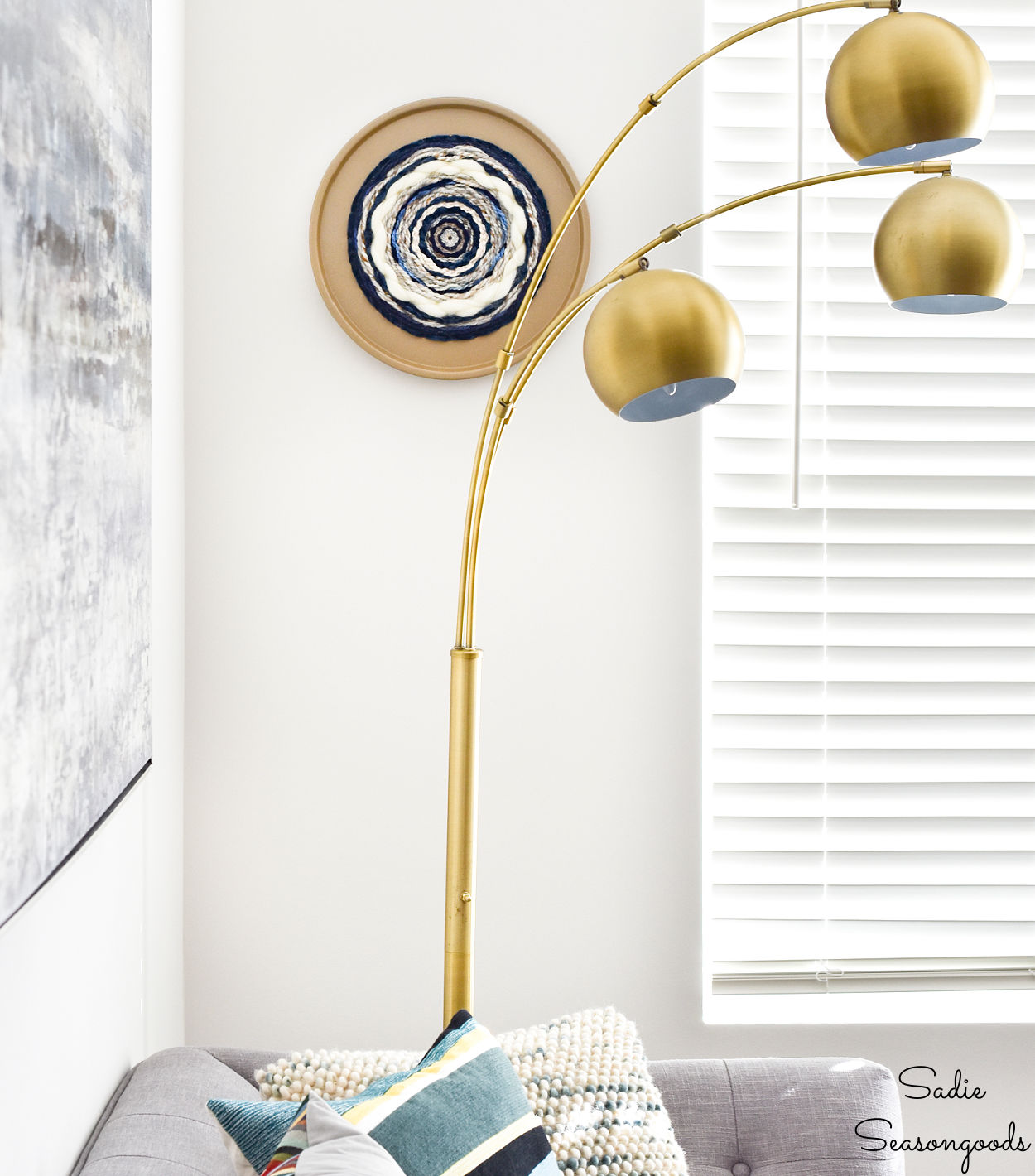
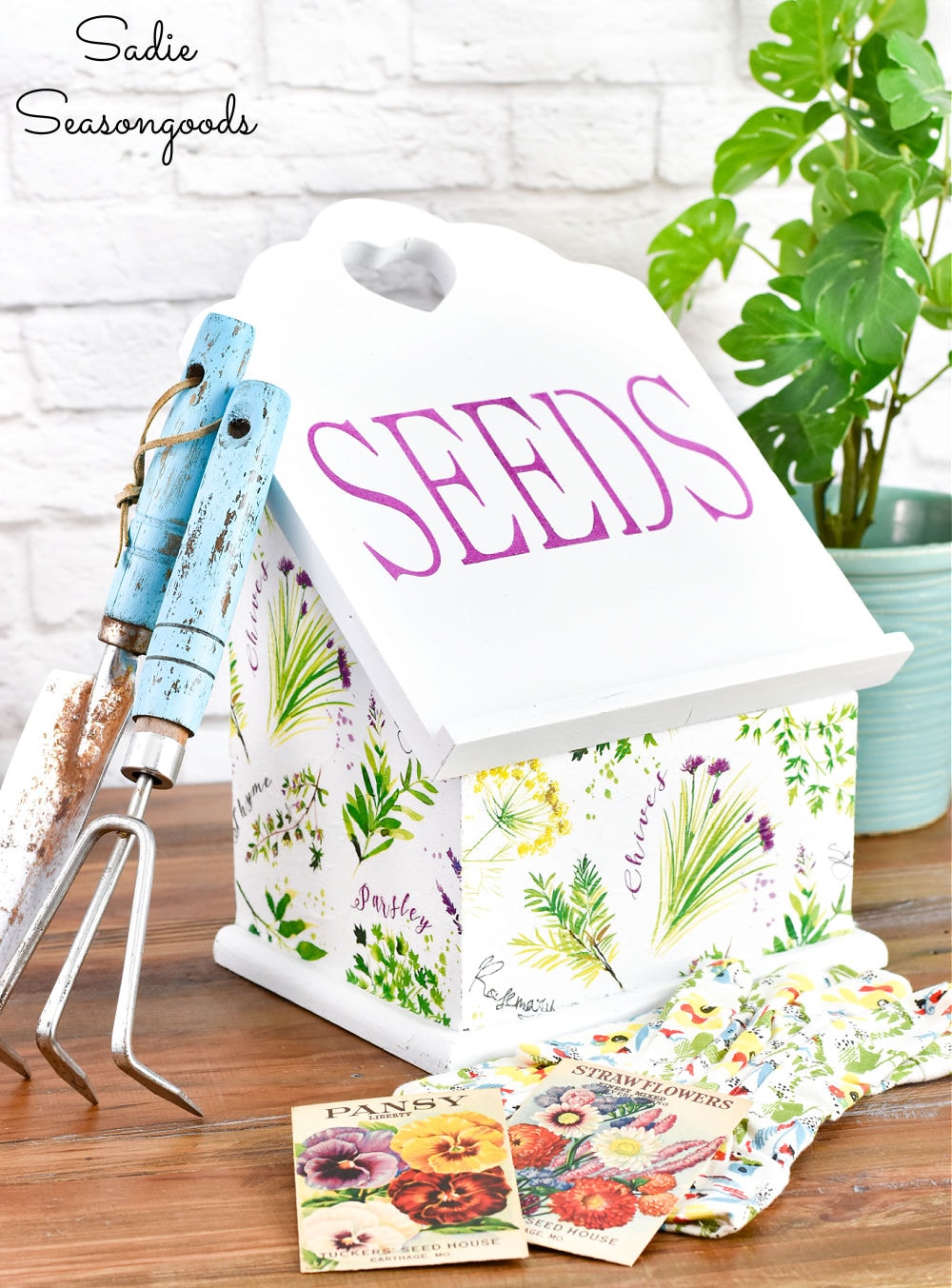
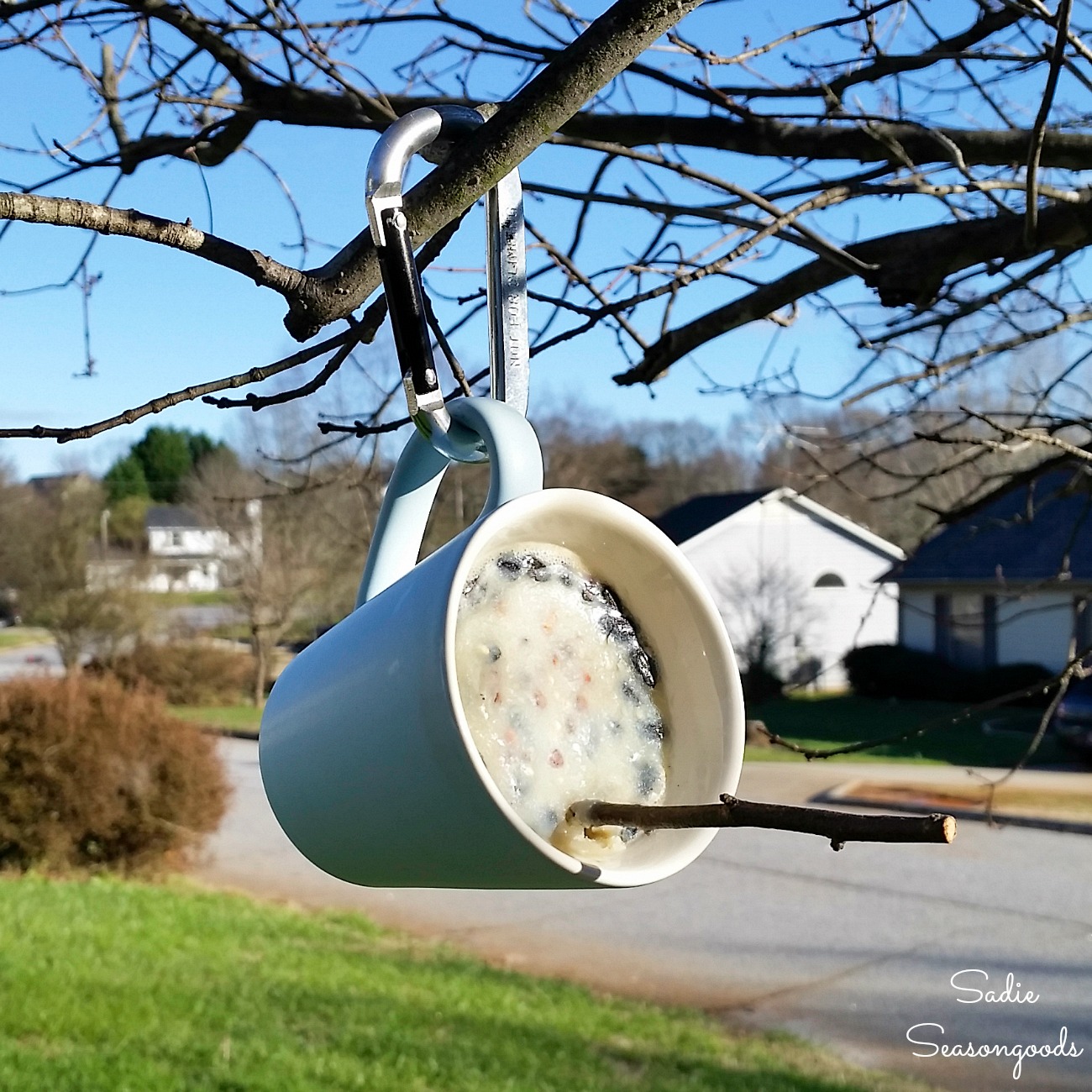

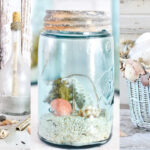
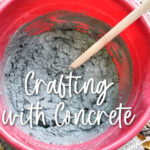
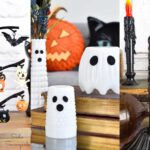

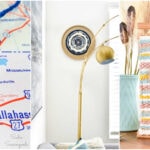




Have a question or like what you see? Please let me know!